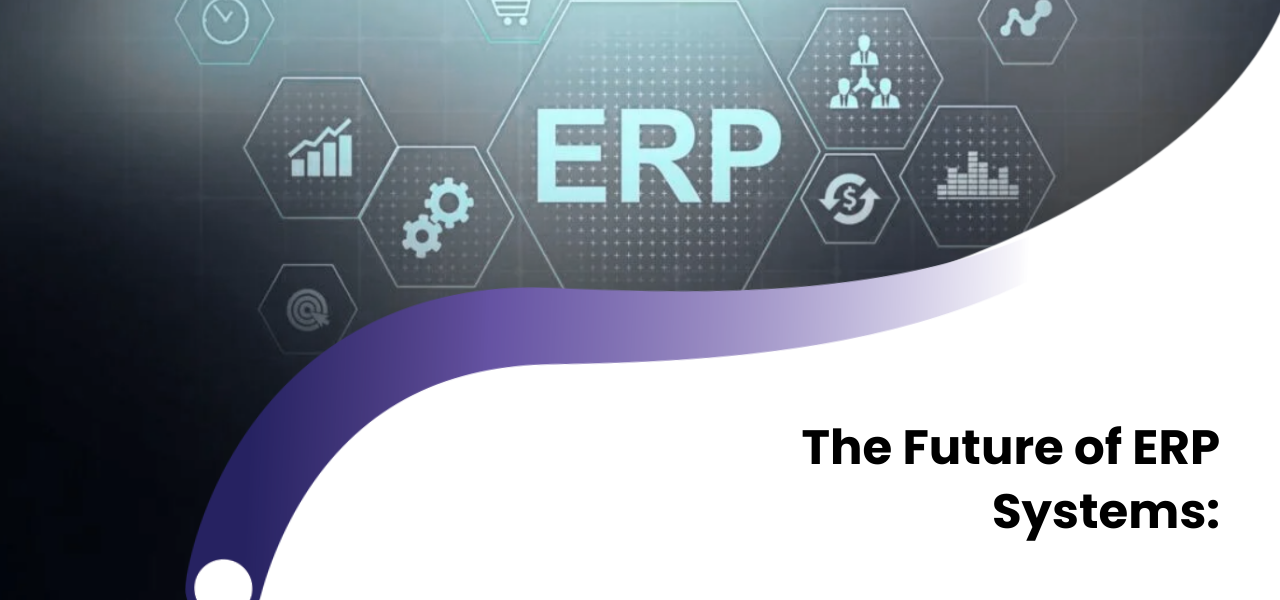In recent years, competition in the business world has intensified significantly. Companies maintain their market position not only with product quality but also with the efficiency of management processes. This reality increases the importance of ERP (Enterprise Resource Planning) systems. Traditional ERP solutions have long served as the main management tool for enterprises. However, the rapidly changing market and technological progress are completely transforming the future of these systems.The future of ERP systems is no longer limited to managing operations. These solutions integrate with artificial intelligence, cloud technologies, mobile applications, and IoT, turning into the “digital brain” of business.
The Role and Importance of ERP Systems
The main mission of ERP is to collect data from different departments in a single center, analyze them in real time, and optimize processes. This allows companies to:
- reduce costs,
- make more accurate decisions,
- allocate resources more efficiently,
- improve customer satisfaction.
However, the rigid structure and high implementation costs of traditional ERPs create challenges in modern conditions. Therefore, the ERP systems of the future will be more flexible, adaptive, and intelligent.
Key Trends Shaping the Future of ERP
1. Cloud-Based ERP
Cloud technologies have become a turning point in the development of ERP. If previously these solutions were accessible only to large companies, today, thanks to SaaS (Software-as-a-Service) models, small and medium-sized businesses can also benefit. Cloud ERP allows companies to:
- avoid high initial costs,
- implement systems quickly,
- scale them at any time,
- support remote teams.
In the future, on-premise ERPs will completely give way to cloud-based solutions.
2. Integration with Artificial Intelligence and Machine Learning
The future of ERP cannot be imagined without AI. Artificial intelligence turns ERP from a simple data repository into a predictive analytics tool:
– Sales forecasting: analyzing past data to calculate future demand.
– Supply chain: identifying delivery risks in advance.
– HR: analyzing employee performance and determining staffing needs.
Such integration gives companies the ability to make smarter, data-driven decisions.
3. Mobile ERP
The modern market requires mobility. Mobile ERP allows employees to access the system from anywhere:
- a sales manager can check stock levels while traveling,
- an HR specialist can track hiring processes via a smartphone,
- an executive can view KPIs in real time on a tablet and make decisions.
This not only increases convenience but also speeds up decision-making.
4. IoT and ERP Integration
In manufacturing and logistics, the future of ERP is closely tied to IoT devices. Sensors transmit real-time data directly to ERP systems:
- warehouses automatically update product quantities,
- logistics companies track deliveries using GPS,
- machines report their status directly to ERP.
This reduces errors and minimizes human intervention.
5. Cybersecurity and Data Protection
ERP is the “heart” of a company, storing financial and customer data. Future systems will rely on robust security measures:
- Zero Trust: verifying users at every step,
- data encryption,
- behavioral analytics to detect suspicious activities.
This will protect ERP systems from potential attacks.
Strategic Importance of ERP for Business
ERP is not only a management tool but also a strategic asset. Its impact on business will continue to grow:
- cost reduction through automation,
- data-driven decision-making,
- scalability as the company grows,
- improved customer satisfaction.
What Will ERP Systems Look Like in the Future?
ERP will no longer be just internal management software. It will evolve into intelligent platforms connecting the entire business ecosystem. With AI support, ERP will not only store data but also serve as the “digital brain” of the company.
Moreover, systems will become more personalized: each business will be able to choose the modules it needs and disable unnecessary functions.
The future of ERP is both an opportunity and a necessity. The integration of AI, cloud technologies, mobile solutions, and IoT will give companies a competitive edge in digital transformation.
Frequently Asked Questions (FAQ)
1. What is the main advantage of ERP systems?
They consolidate resources and ensure management transparency.
2. Which technologies will shape the future of ERP?
AI, IoT, cloud computing, and Big Data.
3. Why are cloud-based ERPs becoming more popular?
They are scalable, require fewer upfront costs, and support remote work.
4. Is ERP suitable for small businesses?
Yes, SaaS-based ERPs make them affordable and flexible for small companies.
5. Can ERP be customized for a specific company?
Yes, businesses can choose modules and functions tailored to their needs.
 +994512060920
+994512060920





